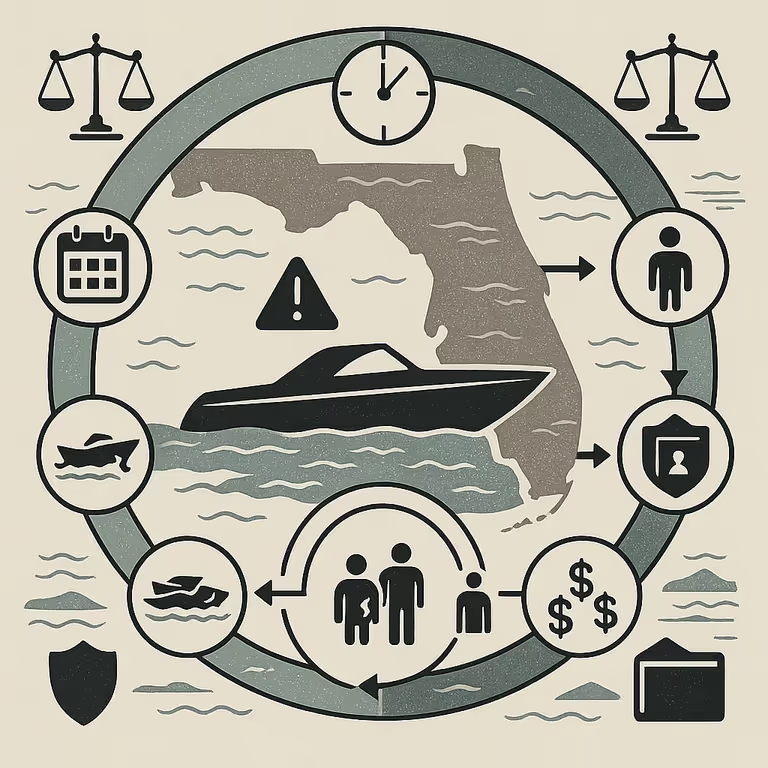Can You Sue for Emotional Distress in Florida? A Complete Guide
Discover how to sue for emotional distress in Florida despite the impact rule. Learn about exceptions, legal requirements, and compensation options.
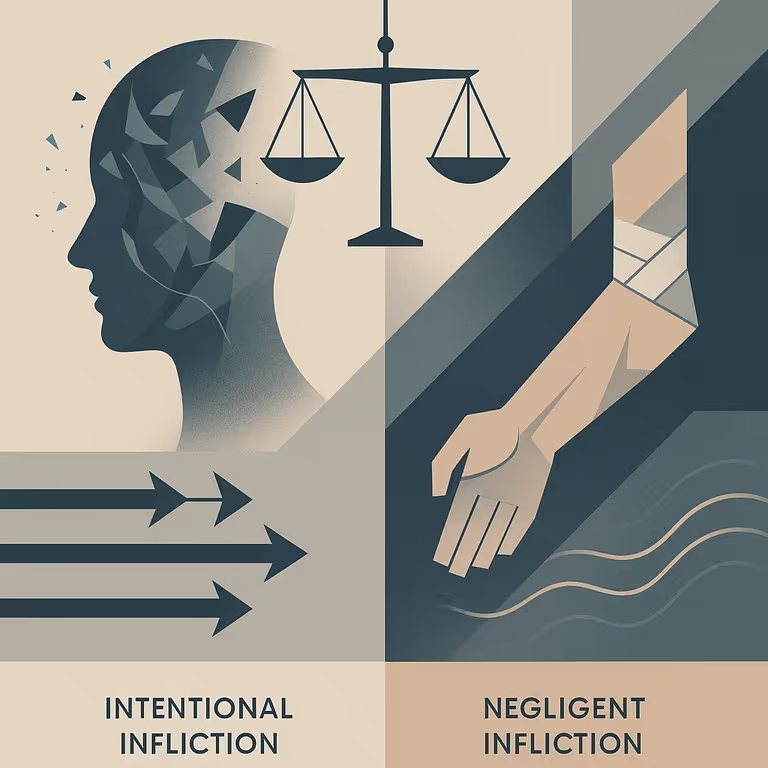
- Florida's impact rule generally requires physical injury to claim emotional distress damages in personal injury cases.
- Intentional infliction of emotional distress claims bypass the impact rule if conduct was extreme and outrageous.
- Time is critical - you have only two years from the incident to file most personal injury claims.
Worried About Your Injury Case? We'll Review It - Free!
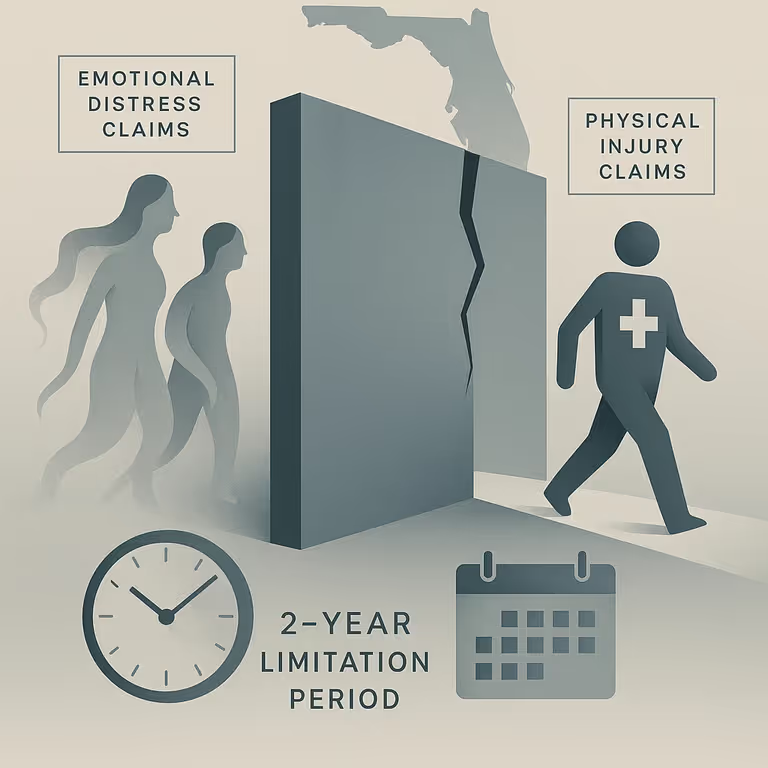

Understanding Florida's Approach to Emotional Distress Claims
Emotional trauma can be just as devastating as physical injuries, affecting every aspect of your daily life. If you're wondering whether you can seek compensation for emotional distress in Florida, the answer is complex but often possible under the right circumstances.
While Florida has specific rules that can make emotional distress claims challenging, understanding your legal options is crucial for protecting your rights and securing the compensation you deserve.
In this comprehensive guide, we'll explore Florida's laws regarding emotional distress claims, including the impact rule, available exceptions, and practical steps for pursuing compensation. Whether you've experienced trauma from an accident, workplace harassment, or intentional misconduct, this information will help you understand your legal standing.

Recognized Types of Emotional Distress Under Florida Law
Emotional distress refers to severe mental anguish, psychological trauma, or emotional suffering caused by another person's actions or negligence. In legal terms, this can manifest as anxiety, depression, post-traumatic stress disorder (PTSD), sleep disorders, or other psychological conditions that significantly impact your quality of life.
Florida recognizes two primary types of emotional distress claims:
Intentional Infliction of Emotional Distress (IIED): This occurs when someone deliberately engages in extreme and outrageous conduct that causes severe emotional trauma. Examples include stalking, harassment, threats of violence, or other shocking behavior that goes beyond what society considers acceptable.
Negligent Infliction of Emotional Distress (NIED): This involves emotional trauma caused by someone's careless or negligent actions, such as witnessing a severe accident or receiving negligent medical care that results in psychological harm.
The key distinction between these types lies in intent - whether the defendant purposefully caused your distress or whether it resulted from their negligent behavior.

Navigating the Impact Rule and Its Legal Implications
Florida's impact rule presents the most significant obstacle for emotional distress claims in personal injury cases. This legal doctrine requires that you suffered some form of physical impact or injury to recover damages for emotional distress.
Under the impact rule, you cannot typically pursue compensation for pure emotional trauma without accompanying physical harm. This means that if you witnessed a traumatic accident but weren't physically injured yourself, you may not be able to recover damages for resulting psychological trauma.
The rule was established to prevent fraudulent claims and limit the scope of liability in emotional distress cases. However, Florida courts have recognized that this strict interpretation can sometimes produce unfair results, leading to several important exceptions.
Recent Legal Changes: It's important to note that Florida reduced the statute of limitations for personal injury claims from four years to two years, effective March 24, 2023. This change affects all negligence-based claims, including many emotional distress cases.

Exceptions That Open Doors to Valid Claims
Despite the impact rule's restrictions, Florida law recognizes several important exceptions that allow emotional distress claims without physical injury:
Intentional Infliction of Emotional Distress: When someone's conduct is so extreme and outrageous that it shocks the conscience, you can pursue IIED claims regardless of physical impact. Examples include severe harassment, threats, stalking, or deliberate infliction of psychological trauma.
Zone of Danger Exception: If you were in immediate physical danger during an incident, even without actual impact, you may recover for emotional distress. This applies when you reasonably feared for your physical safety.
Family Member Exception: Close family members who witness traumatic injury to their loved ones may sometimes recover emotional distress damages, particularly in cases involving wrongful death or severe injury to children.
Professional Negligence: Certain professional relationships, such as those with doctors, lawyers, or therapists, may create special duties that allow emotional distress recovery without physical impact when professional standards are breached.
Statutory Violations: Some Florida statutes specifically allow emotional distress damages without requiring physical impact, particularly in areas like discrimination, privacy violations, or consumer protection.

Essential Steps for Documenting Your Emotional Trauma
Successfully pursuing an emotional distress claim in Florida requires careful preparation and strong evidence. Here's what strengthens your case:
Medical Documentation: Obtain comprehensive mental health records showing your psychological condition, including diagnoses, treatment plans, and the progression of your symptoms. Professional documentation from psychiatrists or psychologists carries significant weight in court.
Expert Testimony: Mental health professionals can testify about the severity of your condition, its impact on your daily life, and the connection between the defendant's actions and your psychological trauma.
Witnessed Evidence: For IIED claims, gather evidence of the defendant's extreme and outrageous conduct. This might include witness statements, video recordings, text messages, emails, or other documentation of their behavior.
Impact on Daily Life: Document how emotional distress affects your work, relationships, sleep, appetite, and overall functioning. Keep detailed records of missed work days, cancelled social activities, or other lifestyle changes.
Timeline Documentation: Establish a clear timeline connecting the defendant's actions to your emotional symptoms, showing that psychological trauma developed after their conduct.
From Filing to Resolution: Your Legal Journey
The process for pursuing emotional distress claims in Florida typically involves several key steps:
Case Evaluation: An experienced personal injury attorney will assess whether your situation meets the legal requirements for an emotional distress claim and determine the best legal strategy.
Investigation and Discovery: Your legal team will gather evidence, interview witnesses, obtain medical records, and build a comprehensive case documenting your emotional trauma and its causes.
Settlement Negotiations: Many emotional distress cases resolve through settlement negotiations, where your attorney will work to secure fair compensation without going to trial.
Trial Preparation: If settlement isn't possible, your case may proceed to trial, where evidence will be presented to a jury who will determine liability and damages.
Compensation Types: Successful emotional distress claims may result in compensation for medical expenses, therapy costs, lost wages, pain and suffering, and other damages related to your psychological trauma.
The amount of compensation varies significantly based on the severity of your emotional distress, the strength of evidence, and the specific circumstances of your case. Cases involving extreme conduct or severe psychological trauma often result in higher awards.
Frequently Asked Questions
How much can I sue for emotional distress in Florida?
Compensation for emotional distress varies significantly based on the severity of your trauma, strength of evidence, and specific circumstances. Awards can range from thousands to hundreds of thousands of dollars, with the most severe cases involving extreme conduct potentially resulting in higher compensation.
What evidence do I need for an emotional distress claim?
Strong emotional distress claims require medical documentation of your psychological condition, evidence of the defendant's conduct, witness statements, and documentation showing how the trauma impacts your daily life. Expert testimony from mental health professionals is often crucial.
Can I sue my employer for emotional distress in Florida?
Yes, you may be able to sue your employer for intentional infliction of emotional distress if their conduct was extreme and outrageous. However, workers' compensation laws may limit your options in some cases, making legal consultation essential.
How long do I have to file an emotional distress lawsuit in Florida?
For most personal injury cases involving emotional distress, you have two years from the date of the incident to file your lawsuit. However, some situations may have different time limits, so it's important to consult with an attorney promptly.
Do I need physical injury to sue for emotional distress in Florida?
Florida's impact rule generally requires physical injury for emotional distress claims in negligence cases. However, important exceptions exist, including intentional infliction of emotional distress claims, zone of danger situations, and certain statutory violations.
Don't Face This Alone - Get the Legal Help You Deserve
Emotional distress claims in Florida require experienced legal representation to navigate complex laws and maximize your compensation. At Douglas R. Beam P.A., we understand the serious impact psychological trauma can have on your life, and we're committed to fighting for the justice you deserve.
Our experienced personal injury team has successfully handled numerous emotional distress cases throughout Florida, helping clients secure compensation for their psychological trauma. We work on a contingency fee basis, meaning you pay nothing unless we win your case.
Contact Douglas R. Beam P.A. today for a free consultation to discuss your emotional distress claim and learn how we can help you pursue the compensation you deserve.
Sources
- Florida Bar. (2025). Florida Standard Jury Instructions in Civil Cases. Retrieved from https://www.floridabar.org/rules/florida-standard-jury-instructions/civil-jury-instructions/civil-instructions/
- Steinger, Greene & Feiner. (2024, November 28). What You Should Know About Suing for Emotional Distress in Florida. Retrieved from https://www.injurylawyers.com/blog/suing-for-emotional-distress-in-florida/
- Vanguard Attorneys. (2024, May 10). What is the "Impact Rule"? - 2025 Florida Emotional Distress Law. Retrieved from https://www.vanguardinjuryattorneys.com/blog/what-is-the-impact-rule-in-florida-lawsuits/
- Florida Senate. (2023). 2023 Bill Summaries - House Bill 837. Retrieved from https://www.flsenate.gov/Committees/billsummaries/2023/html/837
- Gould Cooksey Fennell. (2024, October 29). Statute of Limitations for Personal Injury Claims in Florida. Retrieved from https://gouldcooksey.com/blog/florida-injury-statute-limitations/
Disclaimer: The information provided in this article is for educational purposes only and should not be considered legal advice. Emotional distress laws are complex and vary significantly based on specific circumstances. If you believe you have grounds for an emotional distress claim, it's essential to consult with a qualified personal injury attorney who can evaluate your case and provide personalized legal guidance. Time limits apply to all personal injury claims in Florida, so don't delay in seeking professional legal assistance.
Not Sure What To Do Next? We Can Help – Fast & Free.
Worried About Your Injury Case?
We'll Review It - Free
Don’t miss an article
Florida law, local insights, and the occasional dog pic.
Delivered straight to your inbox.
More articles
Browse all articlesFree Case Review
Get a complimentary review of your case

.webp)
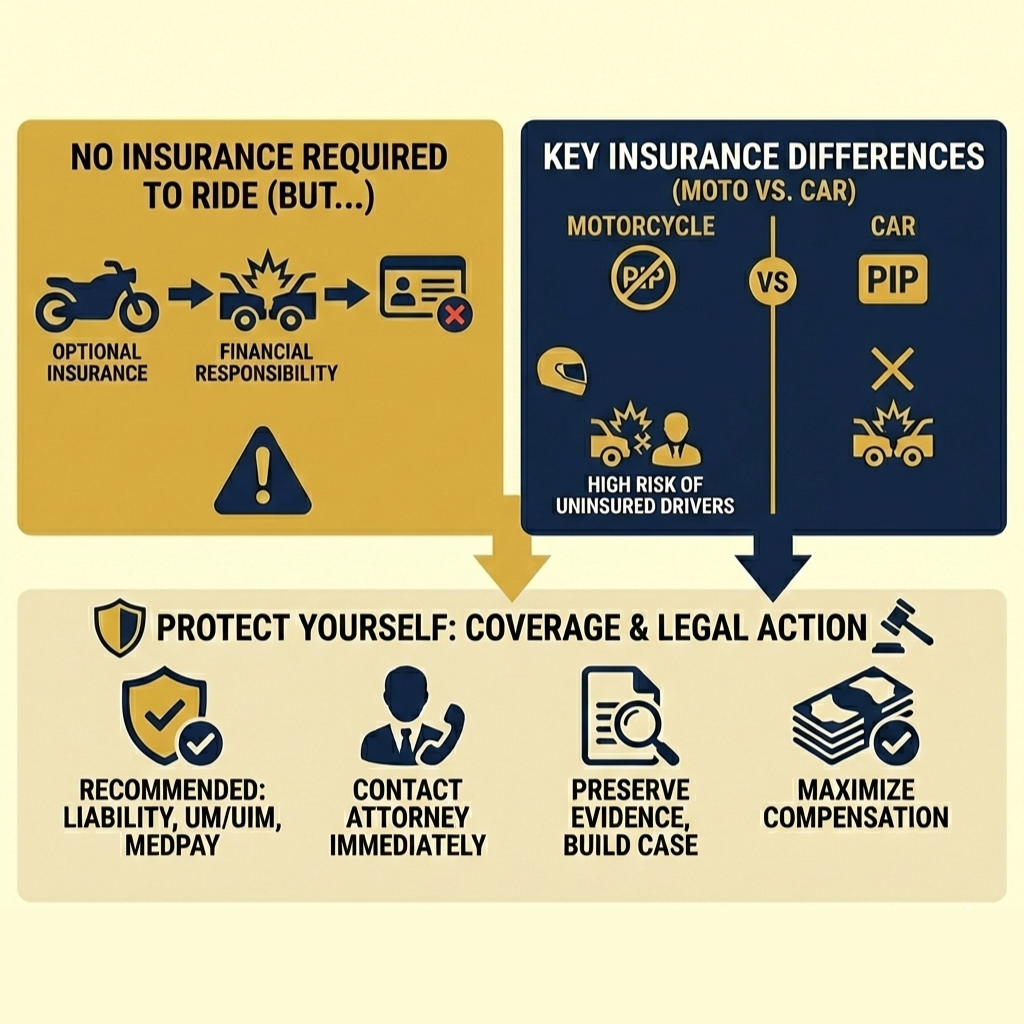
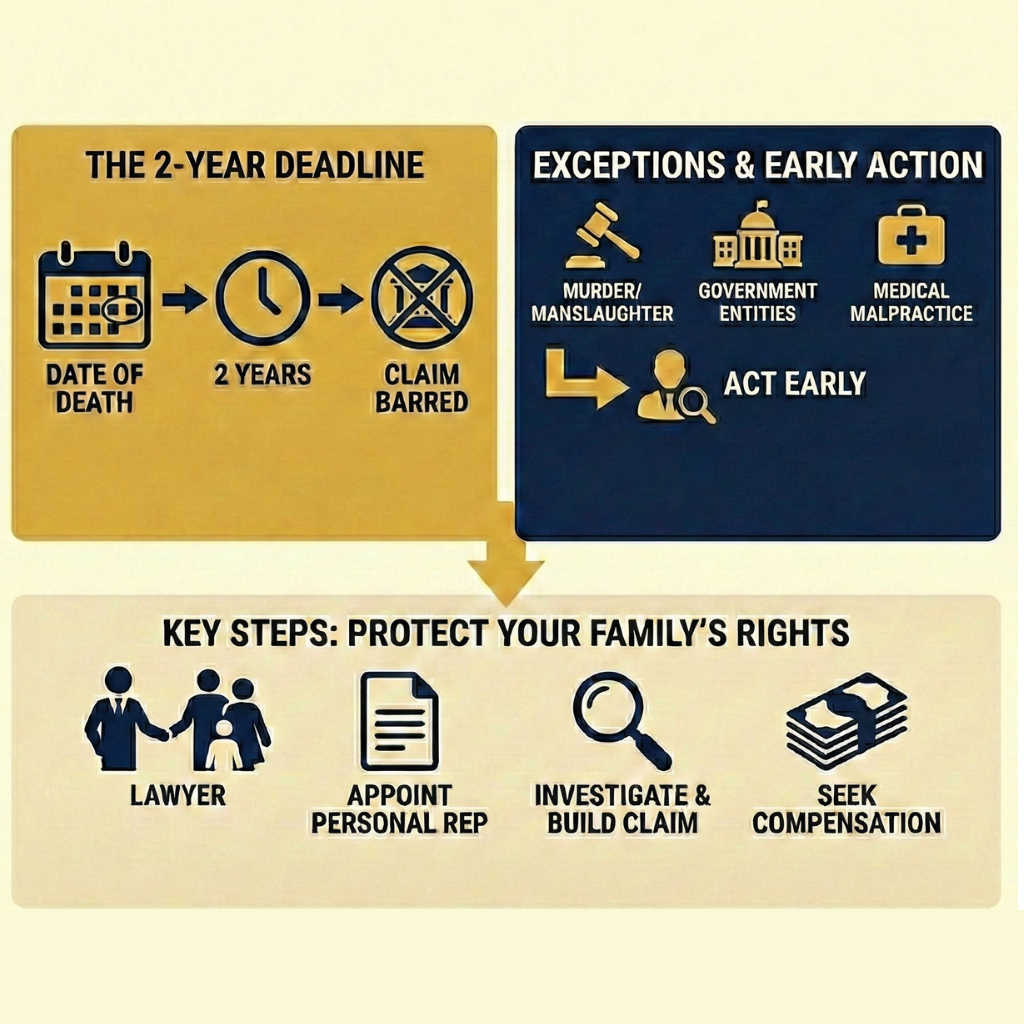
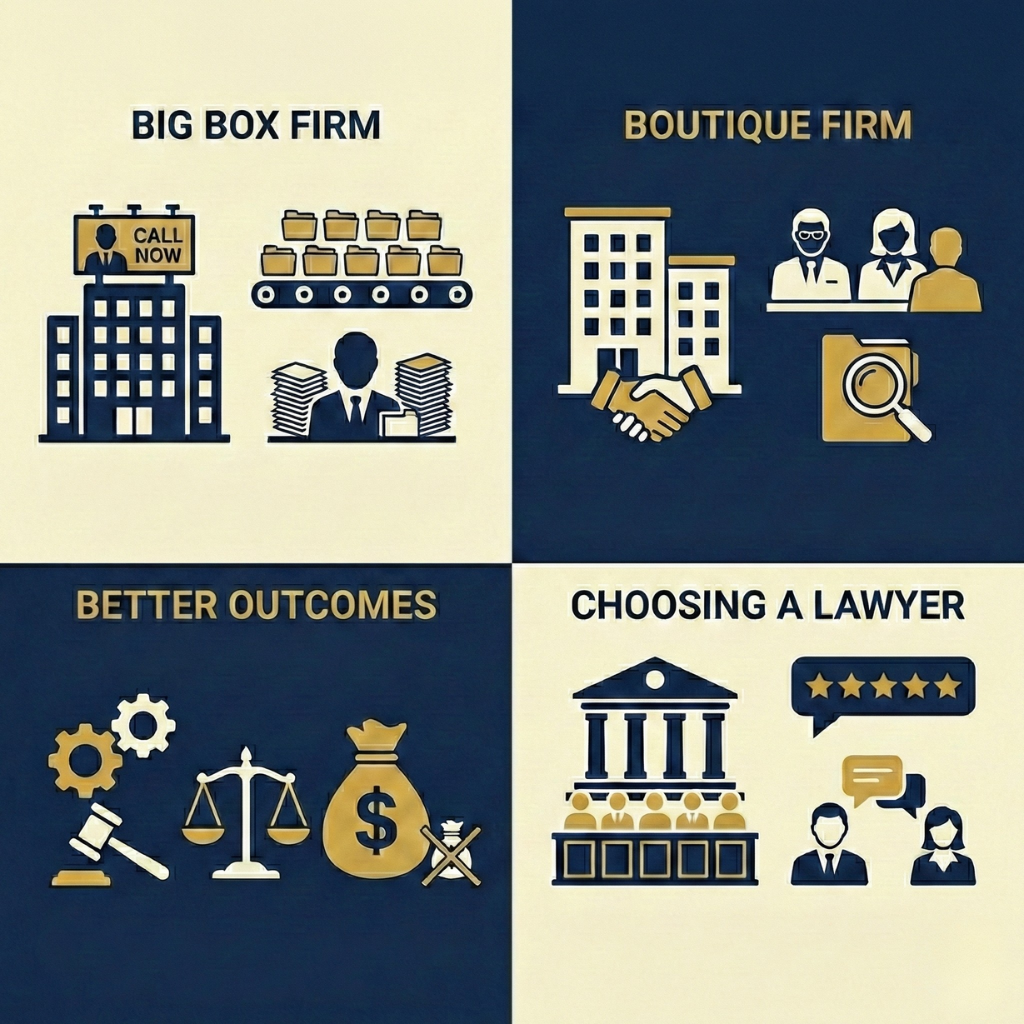
.png)
.png)
.png)
.png)

